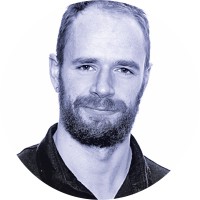The encounter with the undocumented migrant elucidates the meaning of medicine and the morals of society.

Photo: Sturlason
Norway is home to a large group of migrants who have no documents showing their legal right to remain. The figures are highly uncertain – estimates range from 5 000 to 18 000 (1). Some have had their asylum application rejected and remain in the country illegally, others have chosen not to register with the authorities, and some are victims of human trafficking.
We have little knowledge about the undocumented migrants’ health problems. Figures from Europe indicate an elevated prevalence of mental disorders, but in other respects their health issues are similar to those of the general population (2). The Oslo Health Centre for Undocumented Migrants – a service run on a charitable basis – treated 879 people last year, approximately half of whom were new patients. Of these, one in every five reported to have been exposed to violence from the police or military personnel, the same number had been tortured, and one in every ten had been sexually assaulted (3).
Today, migrants with no legal right to remain are only entitled to ‘health assistance of an essential nature that cannot be delayed without risk of imminent death, permanent major disability, serious injury or severe pain’ (4). In addition, they have expanded access to pregnancy care and termination and infection prevention and control, and help is also provided to those who are mentally unstable and pose a risk to themselves and others. Children under 18 years have the same rights as Norwegian children, but cannot be registered with a GP. Although this group has a limited range of entitlements, they do receive treatment from GPs all over the country (5), as well as in two centres in Bergen and Oslo that are dedicated to this group and operated on a charitable basis.
Health personnel report that migrants have little knowledge about their rights and that they refrain from contacting the health services for fear of discovery or due to lack of money (6). An undocumented migrant is not a member of the National Insurance Scheme and must pay the costs of health care him-/herself. If the migrant is destitute, the bill is passed to the doctor or health enterprise in question. The institution that takes the financial risk is also charged with judging whether this health assistance is ‘of an essential nature that cannot be delayed’. It goes without saying that economic considerations may influence their medical assessment.
In 2013, the United Nations criticised Norway for failing to comply with the obligations in the Convention on Economic, Social and Cultural Rights. The organisation was concerned that undocumented migrants only had access to emergency assistance (7). In 2015, an appeal signed by the Norwegian Medical Association demanded that undocumented migrants be given the same access to health care as the population in general (8).
This issue was deliberated in the Storting earlier this year. One proposal would have provided health services to vulnerable groups of undocumented migrants on an equal footing with the rest of the population. Children, people with disabilities, pregnant women and elderly people would have been granted the right to register with a GP and have access to preventive and curative primary healthcare services. Furthermore, a proposal was put forward to extend the funding schemes for undocumented migrants without means (1). The proposals were defeated. A main argument against an extension of the scheme was that it might entail unintended economic effects, such as health tourism. For the same reason, no grants are given to humanitarian organisations that have established their own services (1).
The time has come to open our eyes to the practical problems that these undocumented migrants and health workers are facing on a daily basis. It is unacceptable to ignore the fact that sick people are failing to receive necessary help. Today, the responsibility is shifted onto charitable organisations, individual doctors or hospitals, who risk being left with no reimbursement of their costs. In reality, the current restrictions on the kinds of health assistance that can be provided (‘of an essential nature that cannot be delayed’) are extremely strict. In modern medicine, a clear distinction between prevention, assessment and curative health assistance makes little sense: type1 diabetes may rapidly develop into a life-threatening ketoacidosis unless the patient receives insulin. Blood in the stool may be haemorrhoids or colon cancer, and the doctor needs to speak to and examine the patient in order to make a diagnosis. Severe depression that goes untreated may develop into a suicidal crisis.
A first step towards ensuring equal access to health services for all those who happen to be in Norway would be to establish a fund that could reimburse the costs of hospital trusts, organisations and GPs. This would at least ensure that economic incentives no longer decide what treatment is provided to these patients.
The patient is the telos, the goal and meaning of medicine. Healthcare workers have a moral obligation to help those who suffer. The existing regulations prevent us from acting in accordance with what is medically and morally proper. The perspective can be extended to the societal level: What effect does it have on us as a society and on our moral self-image that we consistently close our eyes to the suffering of others?